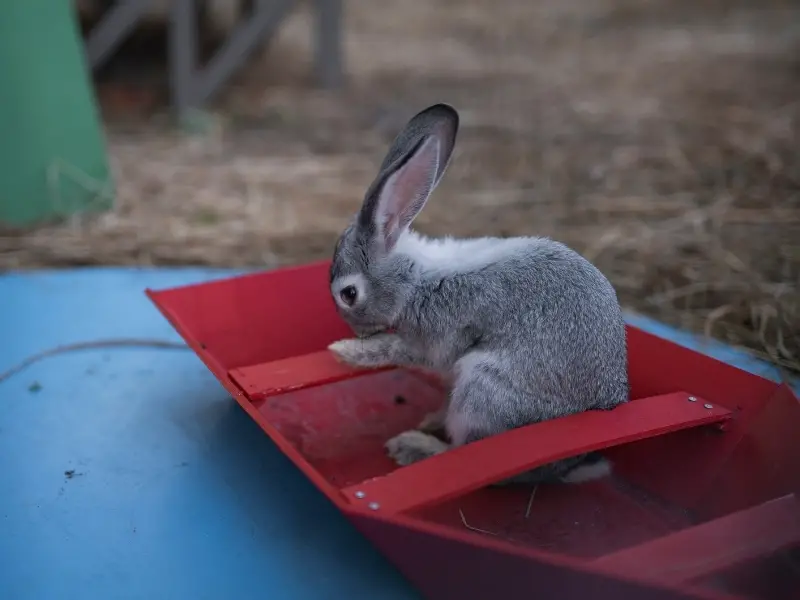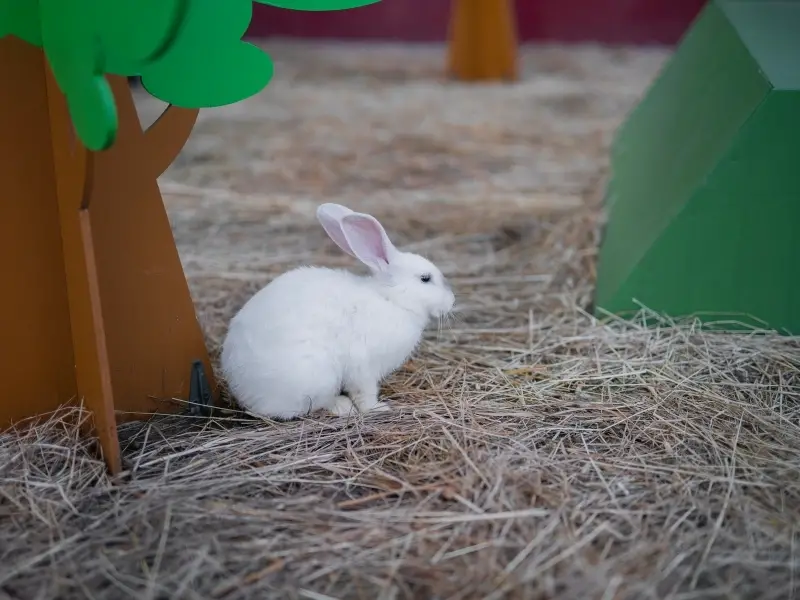Hey there, rabbit enthusiasts! If you're reading this, chances are you're either thinking about adopting a bunny or already have one hopping around your home. Understanding rabbit lifespan is crucial if you want to provide the best care for your furry friend. Let's dive into the world of rabbits and uncover how long these adorable creatures can live. Spoiler alert: it’s longer than you might think!
Rabbits are more than just cute pets with floppy ears. They’re intelligent, social animals that can form deep bonds with their human companions. But before you commit to bringing a bunny into your life, it's important to know what you're signing up for. The average rabbit lifespan can vary depending on factors like breed, diet, and overall health. So, let’s break it down and figure out how to maximize your rabbit's years of happiness.
Whether you're a first-time rabbit owner or a seasoned bunny parent, this article is packed with useful info to help you understand the ins and outs of rabbit longevity. From diet tips to veterinary care, we’ve got you covered. Let's get started!
Read also:Whispering Angel Dupe Your Ultimate Guide To Finding The Perfect Roseacute Substitute
- Introduction to Rabbit Lifespan
- How Breed Affects Rabbit Lifespan
- The Role of Diet in Rabbit Health
- Exercise and Mental Stimulation
- Veterinary Care for Longevity
- Creating the Perfect Environment
- Common Health Issues and How to Avoid Them
- Emotional Wellbeing of Rabbits
- Breed-Specific Lifespan Analysis
- Wrapping It Up: Extending Your Rabbit's Lifespan
Introduction to Rabbit Lifespan
Alright, let's kick things off with the basics. So, how long do rabbits really live? Well, the average rabbit lifespan ranges from 8 to 12 years, but some lucky bunnies have been known to live up to 15 years or even longer. That’s right—rabbits aren’t just short-term commitments. They can be part of your family for over a decade if you take good care of them.
But here’s the thing: not all rabbits are created equal. Factors like breed, genetics, diet, exercise, and overall health play a huge role in determining how long your bunny will stick around. For example, smaller breeds tend to live longer than larger ones, and indoor rabbits generally outlive their outdoor counterparts. We’ll dive deeper into these factors later, but for now, just know that your bunny’s lifespan is largely in your hands.
So, why does rabbit lifespan matter? Simple: because rabbits are incredible creatures that deserve the best possible life. By understanding what affects their longevity, you can make informed decisions to ensure your bunny lives its best life. Now, let’s talk about one of the biggest influencers of rabbit lifespan—breed.
How Breed Affects Rabbit Lifespan
Not all rabbits are built the same, and their breed plays a significant role in determining how long they’ll live. Generally speaking, smaller breeds like the Netherland Dwarf or the Britannia Petite tend to have longer lifespans compared to larger breeds like the Flemish Giant. But why is that?
Why Smaller Breeds Live Longer
Smaller rabbits often have fewer health issues related to size and weight. They’re less prone to joint problems, heart disease, and other conditions that can shorten a rabbit’s life. Plus, their metabolic rates are usually higher, which helps them stay active and healthy for longer.
On the flip side, larger breeds may face more health challenges as they age. Their bigger bodies require more energy and resources to maintain, and they’re more susceptible to issues like arthritis and obesity. That’s not to say large rabbits can’t live long lives—they absolutely can! It just means they need a bit more TLC to stay healthy.
Read also:Green Bay Packers Last Super Bowl Win A Legacy That Lives On
Here’s a quick breakdown of some common breeds and their average lifespans:
- Netherland Dwarf: 10-14 years
- Holland Lop: 8-12 years
- Flemish Giant: 5-8 years
- Mini Lop: 9-12 years
The Role of Diet in Rabbit Health
Let’s talk about food because, let’s be real, rabbits love to eat. A well-balanced diet is one of the most important factors in extending your rabbit’s lifespan. But what exactly should you be feeding your bunny?
The Perfect Rabbit Diet
A rabbit’s diet should consist of three main components: hay, fresh vegetables, and a small amount of pellets. Hay is crucial because it provides fiber, which helps keep your rabbit’s digestive system running smoothly. Fresh veggies add essential nutrients, and pellets offer a concentrated source of vitamins and minerals.
Here’s a pro tip: avoid giving your rabbit too many sugary treats like fruits or commercial snacks. While they may seem harmless, excessive sugar can lead to obesity and other health issues. Stick to a diet that mimics what rabbits would eat in the wild, and you’ll set your bunny up for a long, healthy life.
And don’t forget water! Rabbits need access to fresh, clean water at all times. Dehydration can lead to serious health problems, so make sure your bunny stays hydrated.
Exercise and Mental Stimulation
Exercise is just as important for rabbits as it is for humans. In fact, a lack of physical activity can lead to obesity, muscle weakness, and even behavioral issues. So, how much exercise does your bunny need?
Creating an Exercise Routine
Rabbits should have at least a few hours of free-roaming time each day. This allows them to stretch their legs, explore their surroundings, and burn off excess energy. If you have a small apartment, consider setting up a designated play area where your bunny can safely hop around.
Mental stimulation is equally important. Rabbits are intelligent animals that need mental challenges to stay happy and healthy. Try hiding treats in puzzle toys or providing them with tunnels and boxes to explore. The more you engage your bunny’s mind, the better its quality of life will be.
Veterinary Care for Longevity
Regular vet check-ups are vital for ensuring your rabbit lives a long, healthy life. Just like humans, rabbits can develop health issues as they age, and early detection is key to preventing serious problems.
What to Expect at the Vet
Your vet will likely check your rabbit’s teeth, ears, eyes, and overall body condition during a routine exam. They may also recommend vaccinations, spaying or neutering, and dental care. Don’t skip these appointments—even if your bunny seems perfectly healthy. Preventive care is the best way to catch potential issues before they become serious.
And remember, rabbits are prey animals, which means they’re experts at hiding pain and illness. If you notice any changes in your bunny’s behavior, appetite, or energy levels, it’s important to consult your vet right away. Early intervention can make all the difference.
Creating the Perfect Environment
Your rabbit’s living environment plays a huge role in its overall health and happiness. A safe, comfortable space can help reduce stress and improve your bunny’s quality of life.
Indoor vs. Outdoor Housing
Indoor rabbits generally live longer than outdoor rabbits because they’re less exposed to predators, extreme weather, and parasites. However, if you choose to keep your bunny outside, make sure its hutch is secure, well-ventilated, and protected from the elements.
Regardless of where your rabbit lives, it needs a clean, comfortable space to call home. Provide plenty of bedding, hiding spots, and toys to keep your bunny entertained. And don’t forget to clean the hutch or cage regularly to prevent the buildup of bacteria and odors.
Common Health Issues and How to Avoid Them
Even with the best care, rabbits can still develop health issues as they age. Some common problems include dental disease, gastrointestinal stasis, and arthritis. But don’t worry—with a little knowledge and vigilance, you can help prevent these issues from affecting your bunny.
Preventing Dental Disease
Dental disease is one of the most common health problems in rabbits. It’s often caused by a lack of proper diet and insufficient wear on the teeth. To prevent dental issues, make sure your bunny has access to plenty of hay, which helps grind down its constantly growing teeth.
Gastrointestinal stasis, on the other hand, occurs when a rabbit’s digestive system slows down or stops completely. This can be life-threatening if not treated promptly. To prevent it, ensure your bunny eats a high-fiber diet and stays hydrated. And if you notice any signs of GI stasis—like lack of appetite or decreased fecal output—contact your vet immediately.
Emotional Wellbeing of Rabbits
Rabbits aren’t just physical beings—they have emotional needs too. Providing your bunny with love, attention, and companionship is just as important as feeding it and taking it to the vet.
Building a Bond with Your Bunny
Rabbits are social animals that thrive on interaction. Spend time with your bunny every day, talking to it, petting it, and playing with it. You’ll be amazed at how much your bunny’s personality will shine through when it feels loved and secure.
Consider getting a second rabbit if you have the space and resources. Rabbits are naturally social creatures, and having a companion can greatly improve their emotional wellbeing. Just make sure both rabbits are spayed or neutered to avoid unwanted litters!
Breed-Specific Lifespan Analysis
As we mentioned earlier, different breeds have different lifespans. Let’s take a closer look at some popular breeds and what you can expect in terms of longevity.
Netherland Dwarf
The Netherland Dwarf is one of the smallest rabbit breeds, and it’s also one of the longest-lived. With proper care, these little guys can live up to 14 years. Their small size and high energy levels make them ideal for active households.
Flemish Giant
On the other end of the spectrum, the Flemish Giant is one of the largest rabbit breeds. While they may not live as long as smaller breeds, they still have the potential to live up to 8 years or more. Their massive size requires a lot of space and resources, so be prepared to meet their needs.
Wrapping It Up: Extending Your Rabbit's Lifespan
So, there you have it—everything you need to know about rabbit lifespan. By understanding the factors that affect longevity and taking proactive steps to care for your bunny, you can ensure it lives a long, happy life. Remember, rabbits are more than just pets—they’re family members who deserve the best possible care.
To recap, here are the key takeaways:
- Rabbits can live anywhere from 8 to 15 years, depending on breed, diet, and overall health.
- Smaller breeds tend to live longer than larger ones.
- A well-balanced diet, regular exercise, and proper veterinary care are essential for extending your rabbit’s lifespan.
- Creating a safe, comfortable environment and providing emotional support are just as important as physical care.
Now that you’re armed with this knowledge, it’s time to put it into action. Whether you’re a new rabbit owner or a seasoned bunny parent, your furry friend deserves the best. Share this article with fellow rabbit enthusiasts, leave a comment with your thoughts, and don’t forget to check out our other articles for more tips and tricks. Here’s to many happy years with your bunny!


